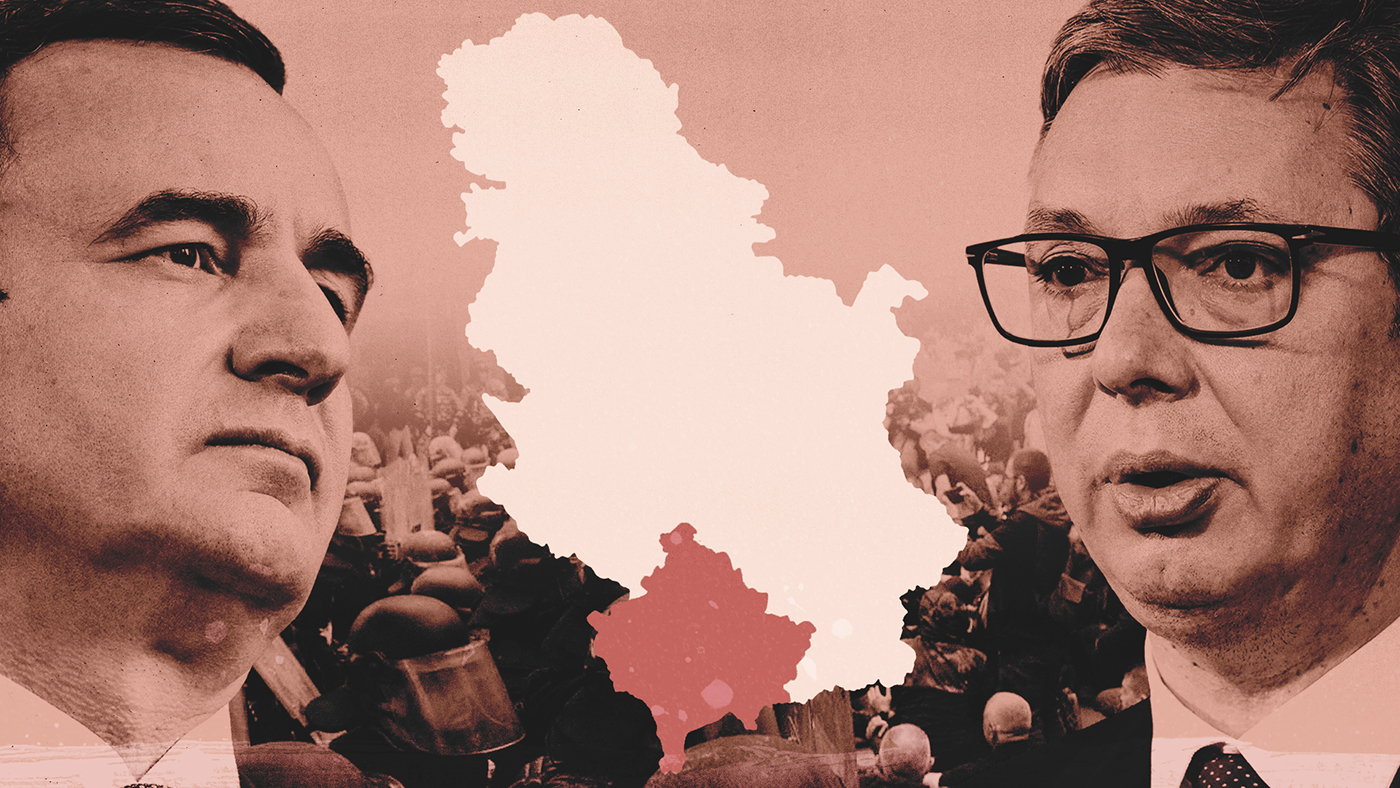Kosovo: why have tensions boiled over in the Balkans?
Nato troops have been injured as fresh violence flared between Kosovo Serbs and ethnic Albanians

A free daily email with the biggest news stories of the day – and the best features from TheWeek.com
You are now subscribed
Your newsletter sign-up was successful
Dozens of Nato peacekeepers were injured in attacks by ethnic Serbs in northern Kosovo this week, during protests over the attempted installation of ethnically Albanian mayors in the country’s north.
Nato reported that 11 Italian and 19 Hungarian soldiers were injured in the clashes, with some sustaining fractures and others burns from the use of improvised explosives and firearms. Serbian President Aleksandar Vucic said that 52 ethnic Serbs were also injured in the skirmishes.
In the wake of the violence, Nato announced its plans to send an additional 700 peacekeeping troops to north Kosovo as the relations between Belgrade and Pristina continue to deteriorate.
The Week
Escape your echo chamber. Get the facts behind the news, plus analysis from multiple perspectives.

Sign up for The Week's Free Newsletters
From our morning news briefing to a weekly Good News Newsletter, get the best of The Week delivered directly to your inbox.
From our morning news briefing to a weekly Good News Newsletter, get the best of The Week delivered directly to your inbox.
What did the papers say?
Tensions “are running high in the region”, Politico said, after ethnic Albanian mayors attempted to take office in four municipalities in northern Kosovo.
The mayors had been elected to fill roles vacated by Serb officials who resigned in late 2022. Following calls from Belgrade, Serbs living in the region abstained from participating in the vote to elect their replacements.
The Serbs in the northern part of the country “refuse to recognise Pristina’s sovereignty and instead follow the lead of Belgrade”, said Euractiv. Consequently, they reject the new crop of mayors, whose election had the lowest voter turnout in the nation’s history.
By Monday, the situation had escalated significantly as protesters attempted to block the new mayors from entering municipal buildings, resulting in numerous injuries.
A free daily email with the biggest news stories of the day – and the best features from TheWeek.com
On Friday, the US, France, Italy, Germany and the UK sent out a joint statement condemning the decision by Pristina to try to force access to the buildings. The five countries also said they are also “concerned by Serbia’s decision to raise the level of readiness of its Armed Forces at the border with Kosovo and call all parties for maximum restraint, avoiding inflammatory rhetoric”.
Nato also issued a statement condemning the attacks on its soldiers and calling “on all sides to refrain from actions that further inflame tensions, and to engage in dialogue”.
The background to the current violence is Kosovo’s declaration of independence from Serbia in 2008, which came after the 1998-99 war in which Kosovar Albanians attempted to break from what was then the Federal Republic of Yugoslavia, CNN explained.
Serbia continues to view Kosovo as “a breakaway state and does not recognise its independence”, the broadcaster said. And Kosovo’s Serbs “view themselves as part of Serbia, and see Belgrade as their capital, rather than Pristina”.
This week’s clashes stem directly from that fundamental schism, but the current violence has flared primarily because efforts in March to normalise ties between leaders from Kosovo and Serbia broke down following the outcome of the recent controversial local elections.
What next?
Representatives of Serbian List (Srpska Lista) continue to demand that the Kosovar Albanian mayors are removed from the Serb-majority municipalities in northern Kosovo and special police units are withdrawn. Until that happens they say their protests will continue.
While the situation remains unresolved, Washington has cancelled Kosovo’s participation in ongoing Nato exercises.
Calls for dialogue continue, but many experts warn that the situation is unlikely to de-escalate any time soon.
According to Radio Free Europe / Radio Liberty, the European Union’s special representative for dialogue, Miroslav Lajcak, has tried to organise a meeting between Serbian President Vucic and Kosovo’s Prime Minister Albin Kurti. However, the site’s sources cautioned that “it appeared unlikely either side was ready to meet or hold talks”.
Arion McNicoll is a freelance writer at The Week Digital and was previously the UK website’s editor. He has also held senior editorial roles at CNN, The Times and The Sunday Times. Along with his writing work, he co-hosts “Today in History with The Retrospectors”, Rethink Audio’s flagship daily podcast, and is a regular panellist (and occasional stand-in host) on “The Week Unwrapped”. He is also a judge for The Publisher Podcast Awards.